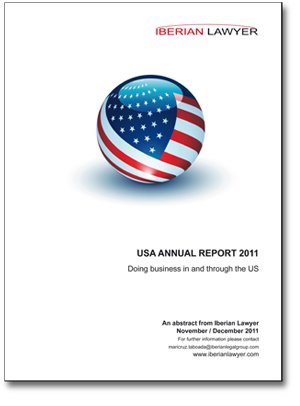The rise of General Counsel with power
The winds of creative destruction are blowing through the corporate legal market, says Mari Soko of Saïd Business School, Oxford University
La globalización, las tecnologías digitales y el conocimiento profesional multidisciplinario ofrecen una combinación de retos y oportunidades para los grandes despachos, afirma Mari Soko, de Saïd Business School en Oxford, Inglaterra. Dos factores clave están cambiando la provisión de servicios jurídicos: la transformación de la función legal en las empresas y la llegada de nuevos actores tecnológicos al mercado.
Globalisation, digital technology and multi-disciplinary professional knowledge: these pervasive forces present a combination of opportunity and challenge for major law firms. Two key agents of change in particular are transforming legal practice. The first is the changing in-house legal function in corporations and financial institutions where, in a buyer’s market, the General Counsel is exerting ever-greater power over the external lawyer. The second has emerged in the form of new entrants into the global legal services market. These non-traditional suppliers, including so-called legal process outsourcing (LPO) providers, deliver legal support services from low cost locations, onshore and offshore.
These are the clear trends that emerged from research we conducted with General Counsel in the UK and US over the course of 2010-2011. Many of them are now prioritising increasing cost effectiveness in the delivery of legal services – a process merely accelerated by the financial crisis.
Over the last five years, the majority have increased the size of their in-house legal teams reflecting business growth generally. At the same time, many General Counsel are also looking to reduce the number of law firms they instruct. In some instances this cut has been dramatic. But a significant element is to look also at how they manage “commodity” work – a dirty word for some law firms – and who is best to undertake it.
An evident trend – alongside combining process improvements with reductions in billable hours – is towards “de-lawyering”: the use of non-lawyers to do work previously done by qualified lawyers. For example, patent agents are now doing the work of patent attorneys. Similarly, paralegals are increasingly employed to do simple legal research. Evidence shows that the ratio of lawyers to paralegals is falling steadily, if slowly – from 2.5:1 to 2.3 in the US between 2003 and 2009 and from 3 to 2.9 in the UK.
But much of the traditional legal process work undertaken by lawyers may anyway be on the verge of transformation due to the impact of digital technology, globalisation, and new entrants. In other business sectors this has already prompted greater:
- Disaggregation to break down work into constituent tasks which are then standardised or modularised;
- Process management to ensure the smooth flow of process steps and to eliminate waste;
- Project management to define who does what, and to ensure that milestones and deadlines are met.
General Counsel increasingly tread a fine line between being lawyers and business executives. Over time, their corporate power base has expanded not only because of the short-term impact of the financial crisis but also due to longer-term organisational trends, including the rise in significance of risk management. In this context, the General Counsel’s intimate knowledge of the business is seen as indispensable and many now sit on Management Boards.
Where therefore does the efficient delivery and multi-sourcing of legal services sit among General Counsel’s priorities?
At one extreme, General Counsel see themselves as the guardians of the legal process architecture in their organisations. They delegate much of the day-to-day legal work to other in-house lawyers and focus instead on enhancing the overall value of the legal department to the business. In this approach, the strategic multi-sourcing of legal services is vital. By investing more in new capabilities such as project management, these General Counsel will become a powerful and sustainable force for change.
However, an alternative scenario is possible. General Counsel may place greater emphasis on risk management than the efficient delivery of legal services. Then commoditisation is merely another responsibility to be supported by legal technologists. If this view prevails, re-configuring the legal services market will remain “a game of inches”, tactical rather than strategic.
In such an environment, the drivers for change may actually come from outside legal departments. We may equally be heading for a supply side revolution with new entrants driving discrete, disruptive change in the way legal services are delivered. Either way, the disruptive winds are still blowing.
Mari Soko is a Professor of Management Studies at Saïd Business School, Oxford University, co-Director of the Novak Druce Centre for Professional Service Firms and a Professorial Fellow of New College, Oxford. Her study is titled General Counsel with Power?
Subscribe now to receive your copy of Iberian Lawyer












